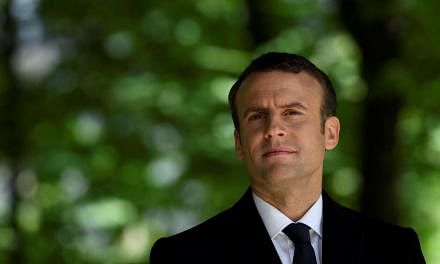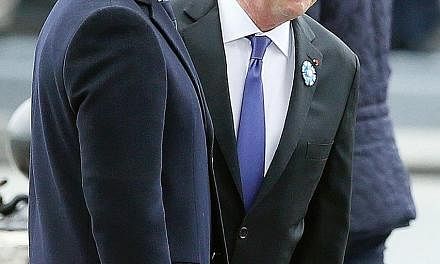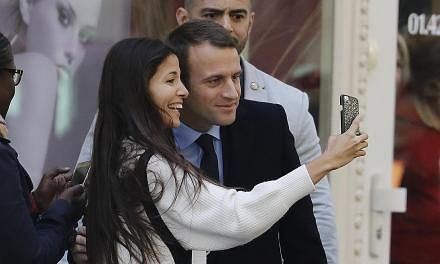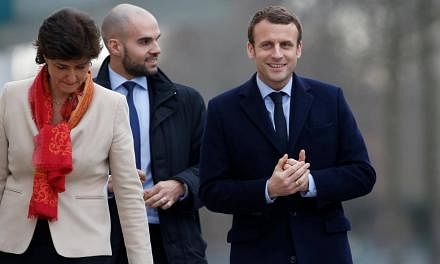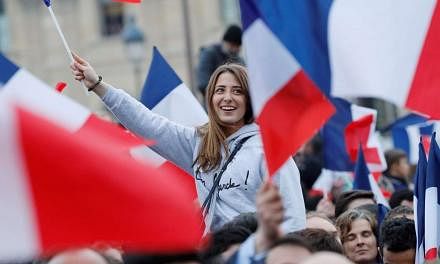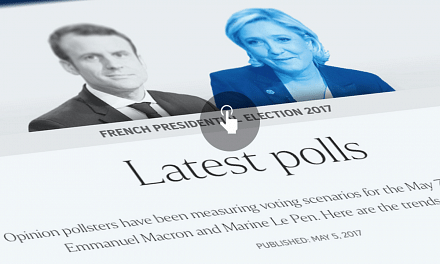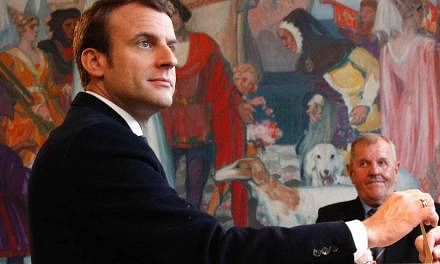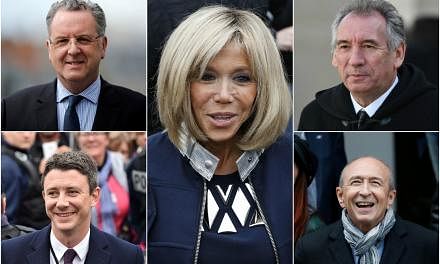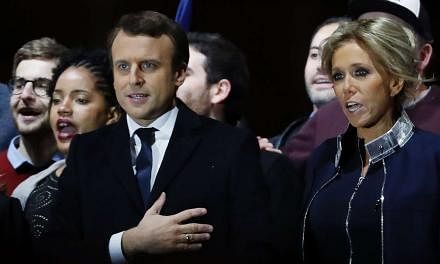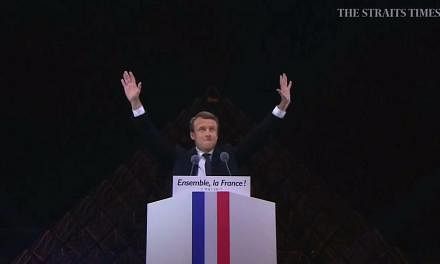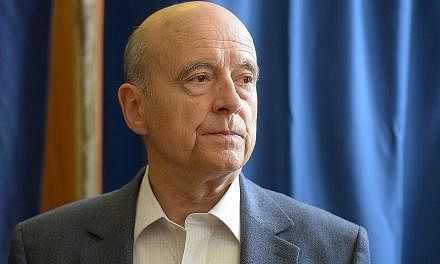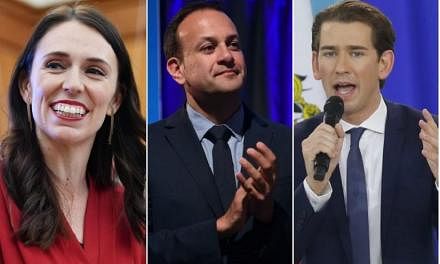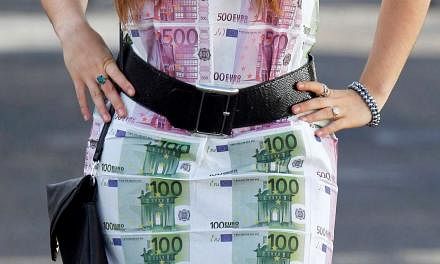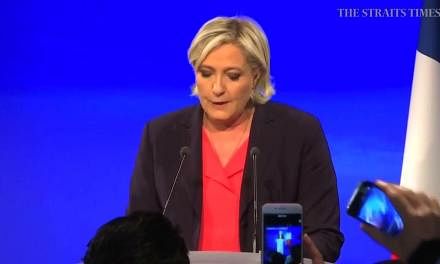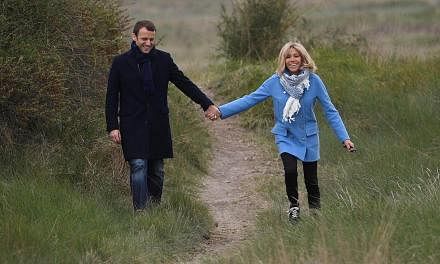PARIS (WASHINGTON POST) - When a triumphant Emmanuel Macron, France's new president-elect, took the stage on Sunday (May 7), he entered to the sound of music - but not to France's national anthem, "La Marseillaise." Instead, Macron claimed his victory to the strains of Beethoven's "Ode to Joy," the official anthem of the European Union.
The election, the most momentous in France's recent history, was about Europe as much as it was about France. Macron was an outspoken defender of the European Union throughout a bitter campaign. He often said that it is "Europe that protects us."
His opponent, the far-right, anti-immigrant populist Marine Le Pen, wanted to remove France from the 27-state bloc.
"We will cede nothing to fear," Macron said. "We will cede nothing to division."
In terms of optics, the Macron campaign chose to hold its official election-night event in a highly symbolic location: the square in front of Paris's Louvre museum.
It was chosen in part because the Louvre's plaza had not been co-opted by other parties: Conservative Nicolas Sarkozy had used the nearby Place de la Concorde of French Revolutionary fame, and Socialist François Hollande the Place de la Bastille.
But the Louvre was more than just what was left.
Well known to many worldwide as the home of the "Mona Lisa," the museum is one of the French capital's best-known destinations. It has major historical significance as a former royal palace that was once the seat of French kings.
It's also the home of the iconic glass pyramid completed by the American architect I.M. Pei in 1989 - a "grand projet" of France's then-president, François Mitterand, to overhaul and modernise the French capital.
Macron, it follows, is attempting to channel both legacies. In his speech, he mentioned the "daring" of the glass pyramid behind him and the "daring" future that he promised lies in store for France.
"You have chosen audacity," said the president-elect, "and the audacity of a new future."
Having been officially endorsed by former president Barack Obama, author of "The Audacity of Hope," perhaps Macron was attempting to capitalise on the momentum. There were, after all, frequent mentions of Obama in the programme leading up to the speech.
But perhaps, with his lofty words, Macron was attempting to be the kind of president the French have always preferred: powerful, strong, even kinglike.
He told the newspaper Le Monde earlier this year, "I will not pretend to be a 'normal' president" - a riff on a promise once made by his successor, the historically unpopular Hollande.
Given that Macron is the youngest president France has elected in more than a century - not to mention the first in the Fifth Republic's history from outside the parties that have run France since 1958 - nothing is likely to be normal about his tenure, at least not as he tries to form a government.
But at least one thing was certain: In Paris, Macron's victory ignited a palpable sense of electricity and enthusiasm, with thousands gathered in public for a reason that, for the first time in a long while, was entirely unrelated to memorialising the dead. This was not "normal" either, but perhaps it soon may be.
